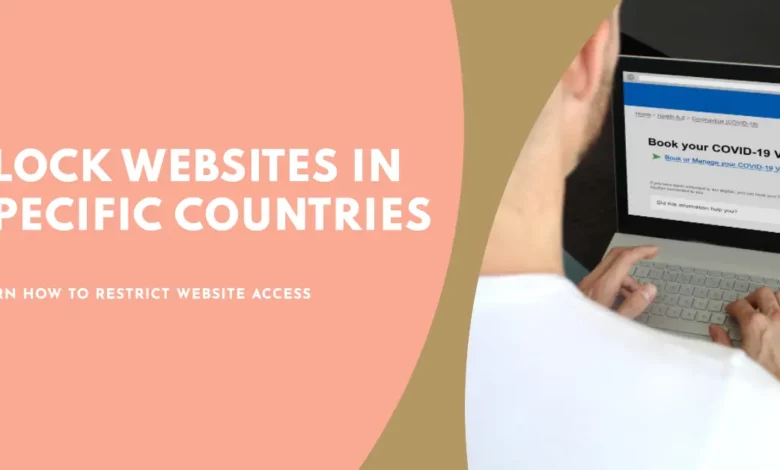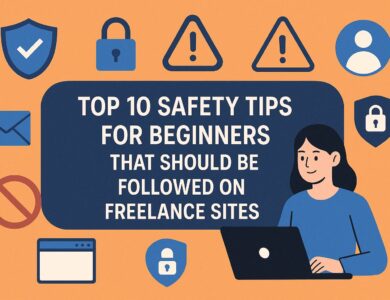
The internet has no boundaries, connecting people and information worldwide. However, there are situations where it becomes necessary to block a website’s visibility in a specific country due to legal, ethical, or security reasons. Whether you’re a government authority, a business owner, or an individual, understanding how to block a website’s visibility can be crucial.
Always ensure that your actions are in compliance with local laws and international human rights standards. Implementing website blocks should be a last resort, and transparency and due process should be upheld whenever possible. Moreover, it’s crucial to stay informed about evolving technologies and methods for blocking and circumventing website restrictions to adapt your strategies accordingly in an ever-changing digital landscape.
In this interesting detailed blog by the best web design company in Delhi, we’ll investigate a range of approaches to achieve this aim while upholding legal and ethical standards.
Reasons Behind Visibility Blockage In A Particular Country
Privacy considerations can also be a significant factor in the decision to block website visibility in a specific country. These privacy-related considerations highlight the importance of balancing individual privacy rights with other factors when making decisions about website blocking. In some cases, blocking websites may be seen as a measure to protect citizens from privacy violations, while in others, it may be used as a means of government control or surveillance.
- Data Privacy Concerns – Some websites may have questionable data privacy practices, such as collecting and sharing user data without consent. Blocking such websites can be a measure to protect citizens’ privacy rights and ensure compliance with data protection laws.
- Surveillance and Government Intrusion – In countries with extensive surveillance and government monitoring, websites that promote anonymity, encryption, or secure communication methods may be blocked to maintain government control over online communications.
- Avoiding Tracking and Profiling – To prevent citizens from being tracked and profiled by certain websites or online platforms, governments might block these services to safeguard individual privacy and data security.
- Protecting Whistleblowers and Dissidents – Websites that support whistleblowers, activists, or dissidents who expose government misconduct or corruption may be blocked to deter those seeking to protect privacy and freedom of expression.
- Transparency and Accountability – Governments may block websites that reveal government secrets or information that could hold officials accountable for their actions, particularly in cases of corruption or human rights violations.
- Protecting Citizen Information – In the event of a data breach or cybersecurity threat involving a website, governments may temporarily block access to safeguard their citizens’ sensitive information until the security issue is resolved.
Legal and Ethical Considerations
Before diving into the technical aspects of blocking a website’s visibility, it’s essential to acknowledge the legal and ethical implications of such actions. Freedom of information and expression are fundamental principles on the internet, and limiting access to websites should be done cautiously and in compliance with applicable laws. Here are some key considerations:
- Legal Framework
Familiarize yourself with the legal framework in the country where you wish to block a website. Laws regarding internet censorship and website blocking can vary significantly from one nation to another. Ensure that your actions are in line with local regulations and international agreements on internet freedom.
- Human Rights
Respect individuals’ rights to access information and freedom of expression. Website blocking should only be considered when it is absolutely necessary to protect national security, public order, or other compelling reasons recognized under international human rights law.
- Transparency
If you are a government or an organization responsible for blocking websites, transparency is essential. Clearly communicate the reasons for blocking a website and provide avenues for legal appeal or review.
- Collateral Damage
Understand that website blocking can sometimes lead to unintended consequences, such as blocking access to legitimate content or services. Implement measures to minimize collateral damage.
Domain-Level Blocking
Domain-level blocking is one of the most common methods for blocking a website’s visibility in a specific country. This approach targets the website’s domain name and prevents users from accessing it. Here’s how it can be done:
- DNS Filtering
DNS (Domain Name System) filtering involves manipulating DNS queries to block access to specific domain names. This method redirects users attempting to access the blocked website to a different page or displays an error message. Governments often use DNS filtering for website blocking.
- Using Local Hosts File
On individual devices, it’s possible to block websites by modifying the local hosts file. This file associates domain names with IP addresses. By adding an entry that points the blocked website to a non-existent or local IP address, you can effectively prevent access to that site.
IP-Level Blocking
Blocking a website at the IP (Internet Protocol) level involves preventing traffic to and from specific IP addresses associated with the website. This method is more technical and can be effective in blocking access:
- Firewall Rules
Network administrators can use firewall rules to block specific IP addresses or ranges associated with the website. This method is more sophisticated and is often employed by organizations to control access to certain websites.
- Content Delivery Network (CDN) Blocks
Some websites use CDNs to distribute their content. Blocking the IP addresses of the CDN can effectively disrupt access to the website.
Deep Packet Inspection (DPI)
Deep Packet Inspection is a more advanced method that involves inspecting the data packets traveling through a network and selectively blocking content based on specific patterns or keywords. DPI can be used to block websites in real-time:
- Content Filtering Appliances
Organizations and governments can deploy content filtering appliances that use DPI to identify and block website content. These appliances examine the content of web traffic and block specific URLs or keywords.
- Proxy Servers
DPI can also be used in conjunction with proxy servers to intercept and block website requests. This approach allows for more granular control over what gets blocked.
Virtual Private Networks (VPNs)
As individuals become more aware of website blocking attempts, they often turn to VPNs to circumvent these restrictions. VPNs encrypt internet traffic and route it through servers in other countries, effectively bypassing local website blocks. To counter this, authorities may implement measures to block or restrict VPN usage.
Legal Actions and Cooperation
For businesses or individuals seeking to block a website’s visibility due to copyright infringement, defamation, or other legal concerns, taking legal actions can be an effective approach:
- Cease and Desist Letters
Contact the website owner or hosting provider with a cease and desist letter requesting the removal of infringing content. Many websites comply with such requests to avoid legal repercussions.
- Digital Millennium Copyright Act (DMCA) Notices
In the case of copyright infringement, you can submit DMCA notices to search engines and hosting providers, requesting the removal of infringing content from search results or hosting servers.
- Cooperation with Internet Service Providers (ISPs)
Work with ISPs to block access to websites that violate the law or your organization’s policies. ISPs often have the ability to implement site-wide blocks if legally required to do so.
Ending Words
As clearly stated by the experts of the best web design institute in Delhi, blocking a website’s visibility in a particular country is a complex and sensitive process that should be undertaken with careful consideration of legal, ethical, and technical factors. Whether you’re a government authority, a business owner, or an individual, it’s essential to strike a balance between protecting legitimate interests and upholding fundamental principles of internet freedom.







